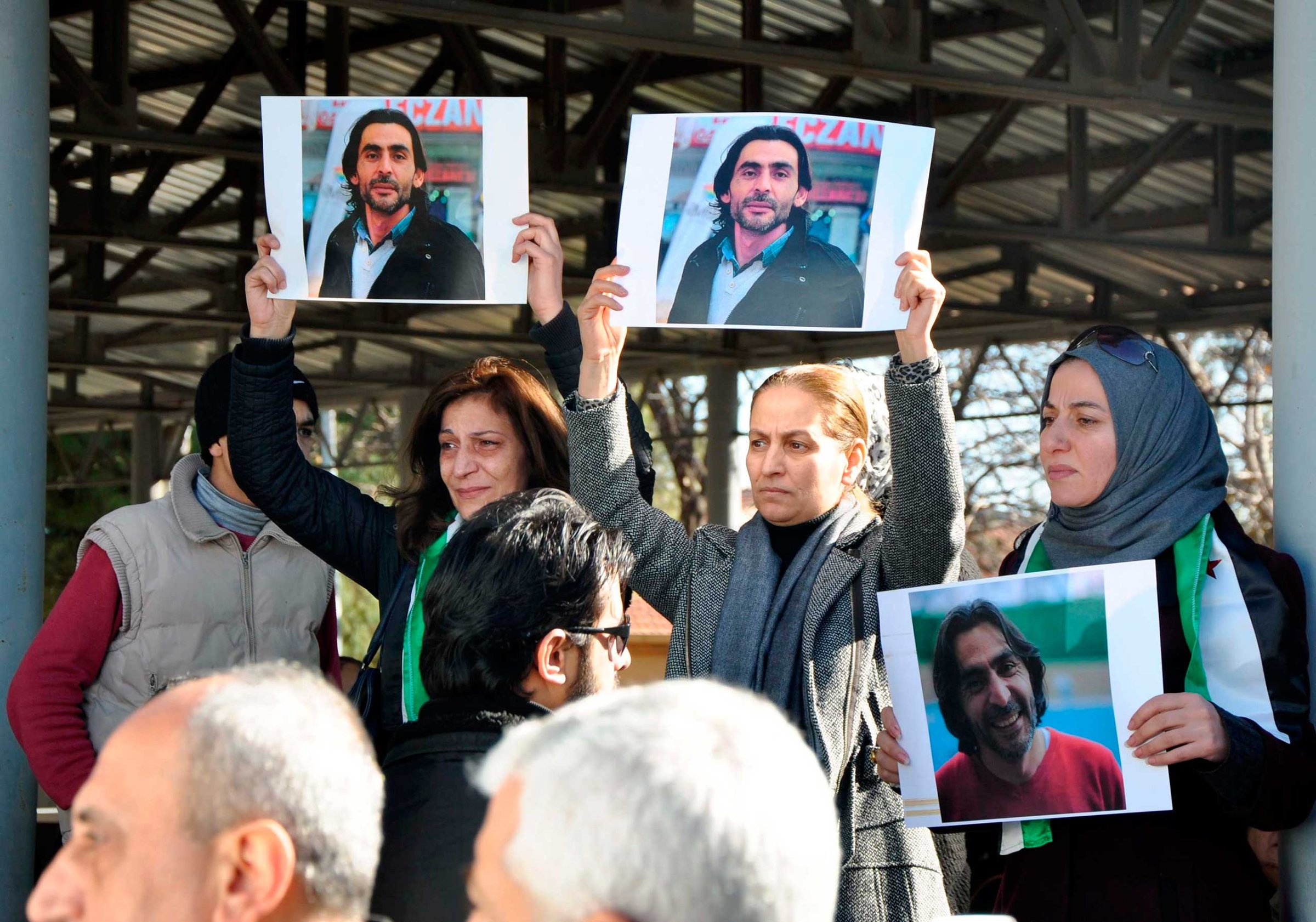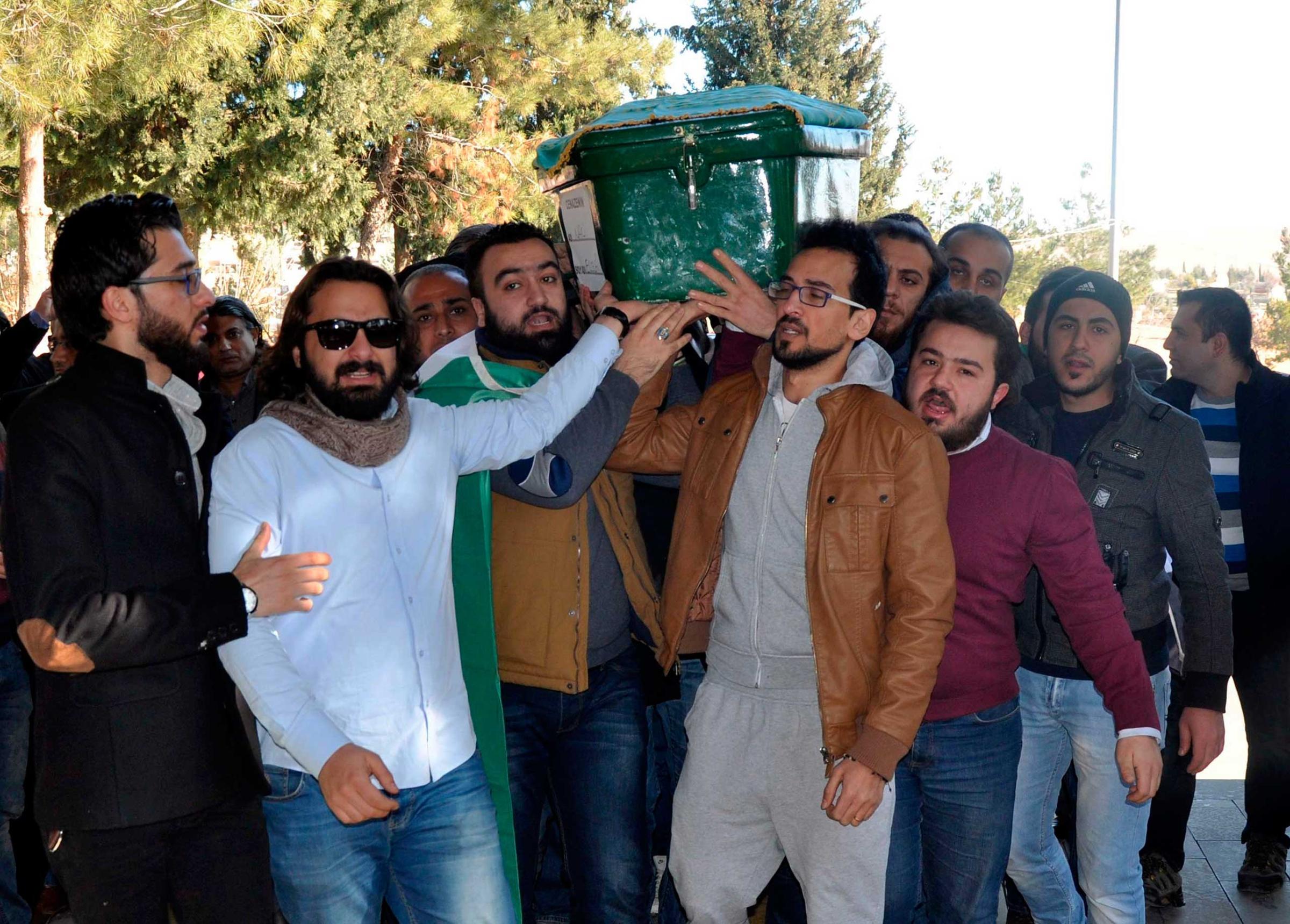
The men and women who have been exposing the reality of life under in ISIS are being tracked down and murdered, according to one of the founding members of ‘Raqqa Is Being Slaughtered Silently’, an underground network of citizen journalists documenting life in ISIS-controlled Raqqa in northern Syria.
Abu Mohammad, a 27-year-old native of Raqqa is one of the 5 founding members of the activist group. Ever since Raqqa became the de facto capital of Isis’s self-declared Caliphate in 2014, the group has been the most credible witness in verifying and chronicling the savagery of life in ISIS territory. For their efforts, three of Abu Mohammad’s associates have been murdered by ISIS in the last two months.
Last year, the group exposed several grisly episodes in Raqqa, including the summary executions of young men and most recently, a potential cholera outbreak among children in Isis-controlled areas.
On Oct. 30 last, 21-year-old Ibrahim Abdul Kader and his friend, Fares Hammadi, 22, were beheaded by four ISIS men in an apartment in the Turkish city of Urfa, around 60 miles from Raqqa.
Then on Dec. 27, the group’s film director, Naji Jerf, was shot in daylight in the Turkish city of Gaziantep, just days before the married father of two was due to escape to France to start a new life with his family. Abu Mohammed and the other founders of the group have so far escaped attack and only two remain in Raqqa.

All group members and their families receive regular death threats from ISIS and these recent latest killings prove that even outside Raqqa, they’re not safe.
“We said we’d continue no matter what happened; before Ibrahim (Abdul Kader) was beheaded, and now, even afterwards,” Abu Mohammad tells TIME from an undisclosed location in Europe, where he’s now taken refuge.
Abu Mohammed, Abdul Kader and Hammadi left Raqqa in 2015 as they felt it was too dangerous to stay. They moved to Gazientep where they continued to compile and publish information about life under ISIS. In the meantime, Abdul Kader met a friend from Raqqa, Tlass Sourer,23, who joined ISIS in 2012 but then left and took refuge in Urfa. “He told Ibrahim (Abdul Khader), ‘I hate ISIS, I’ve escaped them, I’m afraid for my life,’”recalls Abu Mohammad. “But we told him, ‘don’t trust Tlass; a lot of people in Urfa protect ISIS, and it’s easy for them to work there.’”
Deespite the warning, the men became friends and shared food and talked about politics and work. Abdul Khader insisted to his fellow group members: “Don’t worry, Tlass is my friend, I trust him.” It appears that Sourer betrayed his friends and brought three ISIS men to their apartment where they were killed. “I spoke to him about two or three hours before it happened. I asked him what his situation was, he said ‘all is OK; let’s talk tomorrow.'”
It appears that Fares was beheaded first, according to the video of the killing ISIS subsequently released and Abu Mohammad who watched it through; “they used a smaller knife to kill him and a bigger one to behead them.”
“They were like animals; they stabbed Ibrahim 83 times,” says Abu Mohammad. After the killing, they hung Abdul Kader’s body from a door frame and Hammadi’s in the living room. Later, confirming responsibility for the attack, ISIS also released a statement saying “every apostate will be slaughtered silently.”
The ISIS men were believed to have slipped across the border. A car bomb was later found near the group’s office in Gazientep, which Abu Mohammad believes was meant for him and his colleagues. Police told him: “They will do it again, you must leave.”
Abu Mohammad and his colleagues have witnessed many crimes but he finds the murder of friends the most traumatic. Jerf, Abdul Kader and Hammadi, and also former school friends whose corpses they’ve seen paraded on the main square in Raqqa — most of whom were accused of spying for the Assad regime or western governments. One close friend was crucified for working “against Islam” as his mother looked on.
He’ll also never forget a particularly chilling day during Friday prayers at the al-Shohada mosque in Raqqa, just before he left for Turkey, when local Imam Abu Obaidah told the crowd that “Allah would protect anyone who kills any member of Raqqa is Being Slaughtered Silently.” Abu Mohammad’s family get regular visits from ISIS demanding to know his whereabouts. His father tells them: “I hate my son, he is against Islam and he is against ISIS,” in order to protect the rest of the family.
Despite the danger, Abu Mohammad is determined to continue his work from Europe. “We’ll continue until every last one of us dies, ” he says. As the bombing in Istanbul on Tuesday and the murder of his colleagues demonstrate, Turkey is too easy for ISIS to infiltrate, and carry out bombings and executions.
More Must-Reads from TIME
- Why Trump’s Message Worked on Latino Men
- What Trump’s Win Could Mean for Housing
- The 100 Must-Read Books of 2024
- Sleep Doctors Share the 1 Tip That’s Changed Their Lives
- Column: Let’s Bring Back Romance
- What It’s Like to Have Long COVID As a Kid
- FX’s Say Nothing Is the Must-Watch Political Thriller of 2024
- Merle Bombardieri Is Helping People Make the Baby Decision
Contact us at letters@time.com